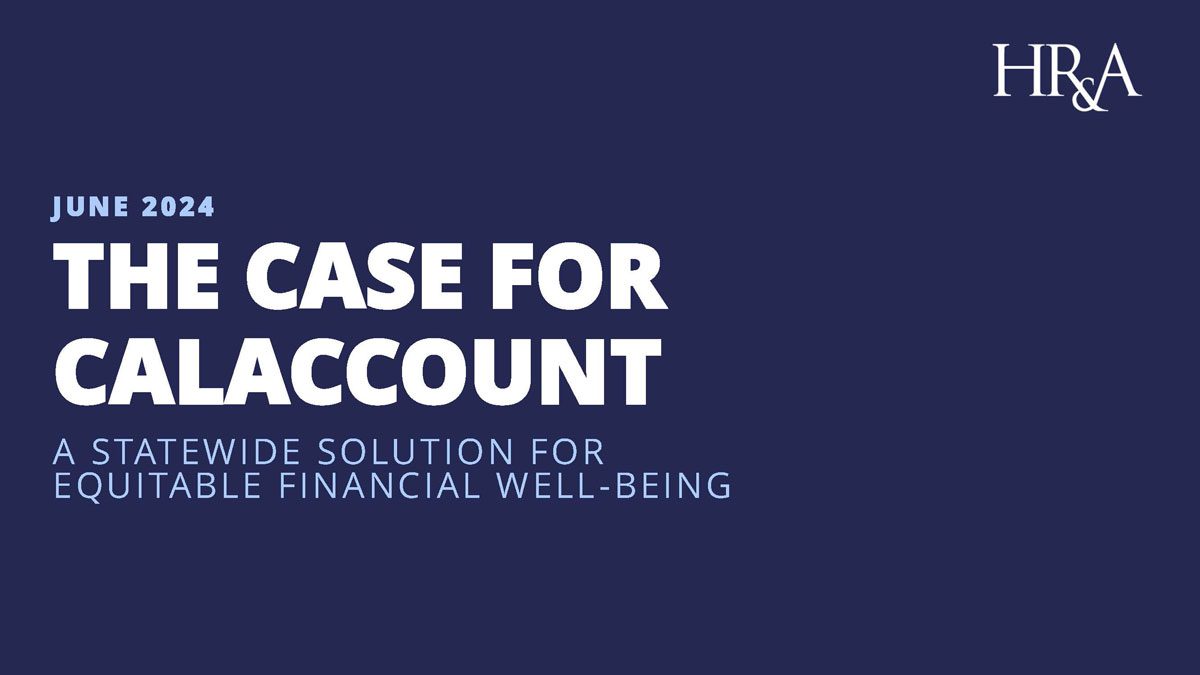on Jun 27, 2024
HR&A Report for Service Employees International Union (SEIU) finds that 1 in 5 California Households Lack Basic Banking Services, New Program Would Save Billions

HR&A Report for Service Employees International Union (SEIU) finds that 1 in 5 California Households Lack Basic Banking Services, New Program Would Save Billions
This news announcement is based on a press release that was originally issued by Service Employees International Union (SEIU).
The Service Employees International Union (SEIU) released a report conducted by HR&A Advisors, which reveals that 1 in 5 California households cannot access basic financial services such as checking and savings accounts and debit cards, underscoring the ongoing crisis of underbanking that restricts financial opportunities for many California families, particularly in communities of color. The report finds that the proposed CalAccount program, a free, public banking option for Californians that the State of California is considering, would save un- and underbanked Californians a total of over $3 billion a year and generate $5 billion in economic activity.
When they cannot access banking services, low-income Californians have to rely on alternative financial service providers like pawn shops and check cashers, which can be costly, predatory and exacerbate their already precarious economic situations. For Californians without access to reliable, foundational banking services, financial stability remains out of reach.
The report details how the lack of adequate access to basic financial services hurts California’s families, communities and statewide economy. Specifically, it finds:
- Seven million Californians are either unbanked, meaning they do not have a bank account – or underbanked, meaning they rely on costly alternative financial services
- Black households are 3.5 times more likely to be underbanked than white households
- Black, Latino/a, and single-female headed households are most likely to be underbanked or unbanked
- 61% of unbanked households make less than $30,000 annually and 41% make less than $15,000 annually. 40% of underbanked households make more than $75,000 per year
- Underbanking is of particular concern to California’s rural communities as 70% of census tracts in California do not have any physical banking outlets and another 15% have only one banking outlet
- The widespread lack of adequate access to basic banking services costs Californians $3.1 billion each year
- Saving Californians from overdraft fees, account maintenance fees, ATM fees, money orders, and check cashing with CalAccount, will generate $5 billion in the California economy
HR&A Advisors found that a solution like CalAccount is necessary to help address the financial service access gap and could be feasible for the State to implement. The proposed CalAccount program, currently under consideration by the CalAccount Blue Ribbon Commission, would generate billions and help Californians keep more of their hard-earned money instead of paying fees to banks or check cashers.
Public Banking Option Would Reduce Income Inequality, Lift Low-Income Communities
Even Californians with access to traditional banking services have to pay exorbitant fees for transactions, account maintenance, ATM use, money orders, check cashing and more. Current barriers to financial services leave Californians vulnerable to predatory lending and other financial risks. With a fee-free public banking service option like CalAccount, unbanked and underbanked households would on average save $1,300 a year, with many households saving much more.
While the report finds households across income levels are underbanked, banking services are most out of reach for single parents, low-income households and communities of color. Low-income, Black, brown, single-parent and immigrant households face arbitrary requirements, like minimum account balances, to access basic banking services that are the building blocks to economic stability and security. These practices trap families in a cycle of debt, making it nearly impossible to save for emergencies or build a secure future. Meanwhile, the same fees that exclude these families from access to banking provide billions of dollars in revenue to some of the largest U.S. banks.
As the report explains, a public banking option like CalAccount would narrow the financial services gap, increase opportunities for low-income communities to build wealth and put financial stability within reach for the Black, Latino/a, and single-female headed households which are most likely to be underbanked or unbanked. CalAccount is a common-sense solution that ensures all Californians have access to free basic services which are critical to financial security.
You can read the full report here.